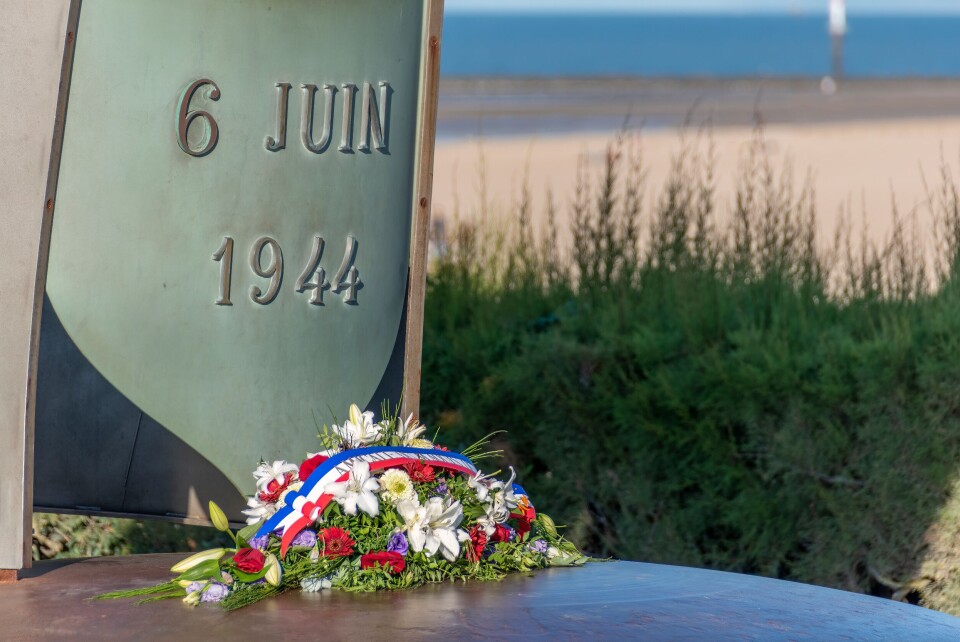-
Ryanair’s presence confirmed at Tours-Val de Loire airport
Bookings for summer flights to Marseille and Morocco are already open
-
Peak in flu cases in France expected in January
Pressure on hospitals is expected to intensify after the holiday period
-
France sees coldest Christmas Day in 15 years as ‘grand froid’ plan triggered
Sharp drop in temperature sees cold weather plan activated in more than a dozen departments
Last survivor of French D-Day commando unit dies aged 100
Léon Gautier’s unit was among the first wave of liberators on June 6, 1944

Léon Gautier, the last survivor of the French D-Day commando unit, has died at the age of 100.
Mr Gautier was the last of the 177 marines who landed in Normandy on June 6, 1944. He died on Monday (July 3), after spending his last few days in hospital.
He had celebrated his 100th birthday in October and had previously returned to Normandy to live out his retirement. He was originally from Nantes.
In an interview with a journalist to mark the 77th anniversary of the landings, Mr Gautier said: “There had to be one last person, and it’s me…the proof is in the pudding!”
The former commando had become a major figure in the commemoration of D-Day in recent years, and on the landings’ 79th anniversary, he attended the Colleville-Montgomery ceremony alongside President Emmanuel Macron.
Romain Bail, the mayor of Ouistreham, said on Mr Gautier’s 100th birthday last year: "He is a symbol because, like Queen Elizabeth II, he lived through the 20th century, which was difficult and painful.
“But he saw peace on the European continent, and he was always determined to pass on what he and his brothers in arms wanted to convey on June 6 1944: A message of peace and freedom.”
Mr Gautier had, a few years earlier, said in an interview: "We have to do everything we can to keep the peace. There are fathers dying, widows and children crying, mothers mourning their sons. War isn't nice, whether it's on one side or the other. We mustn't forget that the enemy is going through the same thing. They have families too.
"War is about killing people. And killing people is no pleasure. When they surrendered, I was happy.”
World War Two enlistment and journey
Mr Gautier was not quite 17 when World War Two broke out. He quickly sought to enlist for service and explained his mindset at the time.
He said: “I was a patriot, we'd just come out of the First World War, and we didn't think much of the Germans, we called them the Boches. My father and grandfather were veterans of the First World War and we hated the Germans, not just Hitler.”
He joined the sea fusiliers and boarded the Le Courbet battleship in February 1940. It would be the last ship to leave the French coast. After the fall of France, the group headed for England, before General de Gaulle made his famous appeal.
"We were put in a camp in Sheffield,” said Mr Gautier. “There, I learned that General De Gaulle was forming an army and recruiting volunteers. Naturally, I signed up.”
This new journey took him into the North Sea, the Atlantic, Africa, and Lebanon. Later, he became one of 177 Frenchmen to join the first battalion of La France Libre, the Kieffer commando (named after its commander, Philippe Kieffer).
After months of training in England, the commando unit set sail for France.
Mr Gautier said: "Kieffer called us together before departure and told us: "Gentlemen, you know the plans, you know what awaits you, there may not be a dozen of you who will return intact. Anyone who doesn't want to go should come and see me. I wouldn't blame him.’ But everyone went.”
The commando was one of the first wave of liberators. They landed at 07:55 on the Colleville-Montgomery beach, near Ouistreham. The battle for Normandy had only just begun, and the commando ended up staying on the front line for 70 days.
“By the end of the campaign, [only] 24 of us had not been wounded,” said Mr Gautier.
Years in England…and return to France
He eventually returned to England to marry Dorothy Banks, whom he had met in 1943. The couple were out walking on May 8, 1945, when they heard the news that the war was over.
"We started crying like children,” he said. “It was a wonderful day for us. We had won the war. We were going home.”
Mr Gautier tried to find somewhere to live in France but eventually returned to England, where he worked as a bodywork mechanic for seven years. He later retired in France with his wife, in Ouistreham, mainly because of its proximity to all the D-Day memorial ceremonies, he said.
He later said that he loved seeing “children playing and frolicking freely” on the same beach where he had landed decades before. “It makes me happy,” he said.
And yet, he did say that he felt that General de Gaulle did not praise the Normandy landings as much as other parts of the war.
“General de Gaulle preferred to talk about the landings in Provence rather than on the Normandy coast,” said Mr Gautier. “I think he resented not having been warned. I knew before he did where we were going to land in France. Perhaps on this occasion, the British lacked a little diplomacy…?”
Related articles
War veteran writes open letter against wind farm plans on D-Day beach
Vital role of 177 French commandos on D-Day
























